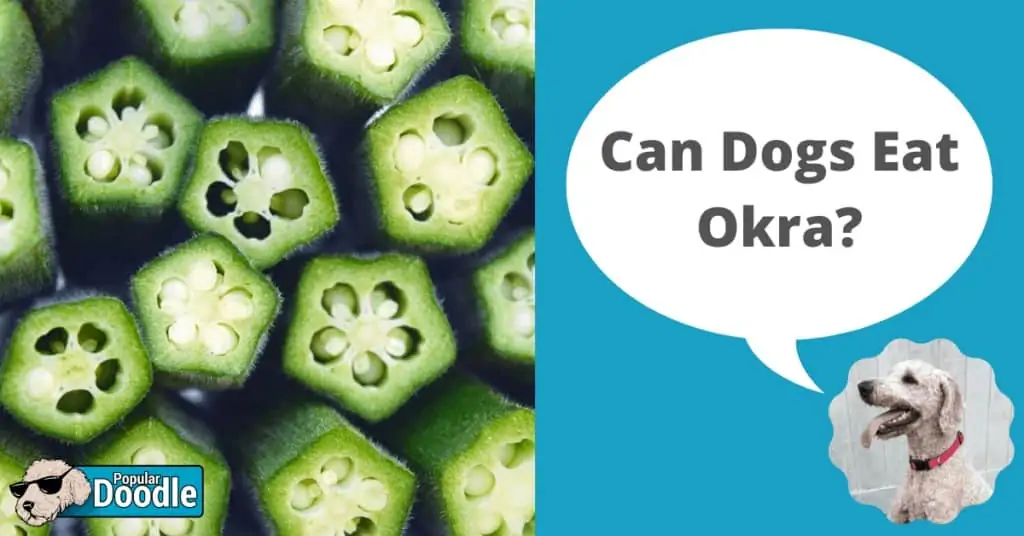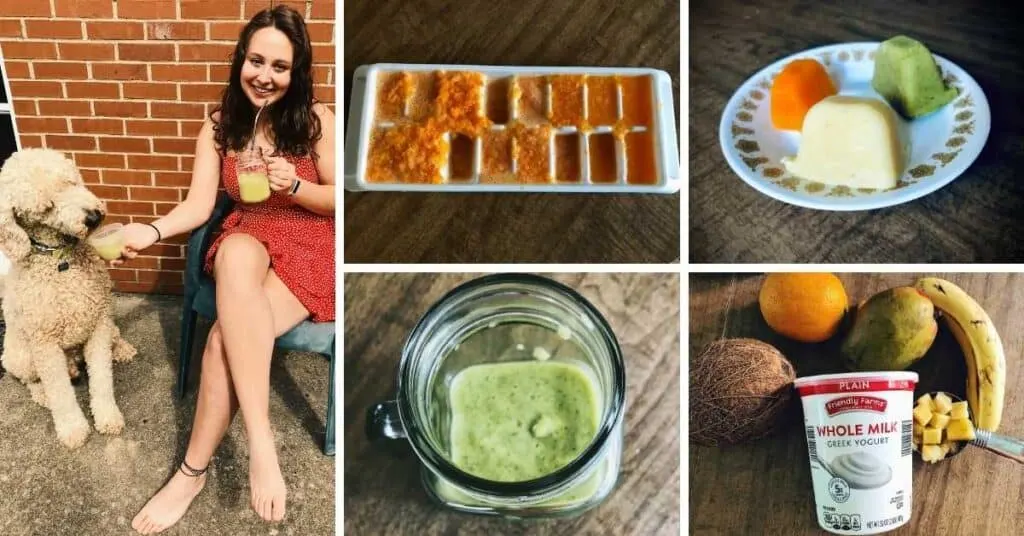
Originally native to Mexico and South America, the papaya has become a common fruit grown throughout the world. Its creamy texture and sweet taste may be why Christopher Columbus referred to them as, “the fruit of the angels.” Not only do they offer a unique taste, but they’re full of vitamins and minerals making them a healthy snack choice. In fact, a papayas can contain up to 300% of your daily recommended intake of Vitamin C! With all these health benefits for humans, you may be wondering, “can dogs eat papaya fruit?” So, is papaya good for dogs? Continue reading for the answer!
Can Dogs Eat Papaya Fruit? (The Short Answer)
Yes, papaya is a healthy option to introduce to your dog’s diet! With minimal risks, papayas offer a multitude of health benefits that make it a healthy snack for dogs. The nutrients in papayas are good for digestive health. The fruit itself is safe, but it’s important to ensure that you remove all seeds and the skin before serving.
It’s important to remember, that even with the best of intentions, accidents happen and dogs can easily eat things they shouldn’t. Unfortunately, even if those accidents aren’t fatal, they can result in huge, unexpected veterinary expenses. That’s why we recommend all responsible dog owners get a free, online pet insurance quote from Healthy Paws.
Is Papaya Good For Dogs?
We’ve already answered the question, “can dogs eat papaya?” Now, let’s learn about the benefits of feeding your dog this food! Is papaya good for dogs?
Yes! In moderation, papayas can be a healthy treat option for dogs. They contain an abundance of vitamins and minerals that are good for humans and dogs alike.
Papaya are rich in vitamins and minerals. These include Vitamin A, C, E, and K, folate, potassium, and calcium. These nutrients can help support overall cardiac health and promote the immune system.
Papaya is especially beneficial for the digestive system due to the amounts of fiber and enzymes in them. In dogs with digestive problems, giving them papaya may help promote their digestive health!
As with most foods you give your dog, you should give them small pieces in moderation. Papaya can be a nice treat every once in a while, but should not make up a majority of your dog’s caloric intake.
Is Papaya Bad for Dogs?
We’ve already answered the question, “can dogs eat papaya?” Now, let’s learn about the dangers of feeding your dog this food! Is papaya bad for dogs?
There are very few dangers associated with dogs ingesting papaya. That being said, there are some things you should be aware of to ensure you’re feeding your pet safely. The seeds should not ever be given to your pet. It is also best to avoid giving your pup the skin as it is difficult for them to digest. Additionally, the papaya should be cut into small pieces to avoid choking.
Keep in mind that when serving papaya to your dog, you should always remove the seeds. While the seeds are safe for humans to eat, most opt to remove them anyways. The seeds contain trace amount of cyanide, and although the risk of cyanide poisoning is low, it can be lethal. This is especially true if they’re ingesting them frequently. Another problem with the seeds is that they can become a choking hazard. The biggest issue with the seeds is that they can cause gastrointestinal upset and potentially intestinal blockages in dogs. Intestinal blockages can become very harmful to dogs very quickly and result in extensive veterinary attention.
The skin of the papaya can be harmful to dogs, because it is difficult to digest. This can cause your furry friend to experience unnecessary gastrointestinal distress or even a bowel blockage. Although it should not cause imminent harm if your dog accidentally ingests a small amount of papaya skin, it’s best if you avoid giving it to them to prevent an upset stomach.
Like most human foods we give our dogs, we need to make sure that we cut them into appropriate sized pieces to avoid the risk of choking.
Alternative Options
If you don’t have access to papaya or would prefer to share a different snack with your dog, try these tasty and healthy alternatives instead:
- Can Dogs Eat Kiwi?
- Can Dogs Eat Apples? (or even applesauce!)
- Can Dogs Eat Cranberries?
- Can Dogs Eat Pears?
Other Varieties & Related Foods:
Is Dried Papaya Safe for Your Pup?
While dogs technically can eat very small quantities of dried papaya, we do not recommend feeding it to them. They often contain a higher sugar content which can cause gastrointestinal upset in most dogs. This is the same reason we opt agains recommending dried figs and prunes. Fresh papaya is always the better option to feed your dog as it is healthier and contains less sugar.
Can Dogs Eat Papaya Skin?
No. It is not advised to give your dog the skin of the papaya. Similar to other fruits we give our dogs, the skin can be a challenge for their stomachs to digest. This can cause an upset stomach or, in a worst case scenario, an intestinal blockage. That being said, it is best to avoid giving your pup to skin of a papaya to minimize the risk of any associated problems.
Can Dogs Eat Papaya Enzymes?
Yes! Dogs can eat papaya enzymes! In fact, in a lot of instances they’re given to dogs to help promote digestive health. The papaya enzyme tablets are essentially the same as the fruit itself in terms of health benefits. Before giving your dog any tablets, read the directions carefully and be sure to give your dog the appropriate amount based on their size. These enzymes can be especially helpful in older dogs or dogs with digestive issues. It’s also been shown that it can help decrease flatulence in dogs which is good for your dog, and anybody else nearby!
In Conclusion: Can Dogs Eat Papaya?
Yes! Your pup will be happy to know that they can enjoy papaya with you! The papaya contains a significant amount of vitamins and minerals which makes it not only a delicious snack, but a healthy one too. Papaya is especially beneficial to your dog’s digestive health. As long as they’re given in small quantities as a treat they can be enjoyed safely. Remember not to feed your pup the seeds or the skin to ensure the best experience when introducing them to this new treat!
Disclaimer: We are not veterinarians and this article should not be taken as medical or veterinary advice. If you have any questions about your pet’s health or dietary needs, please contact your local veterinarian.








